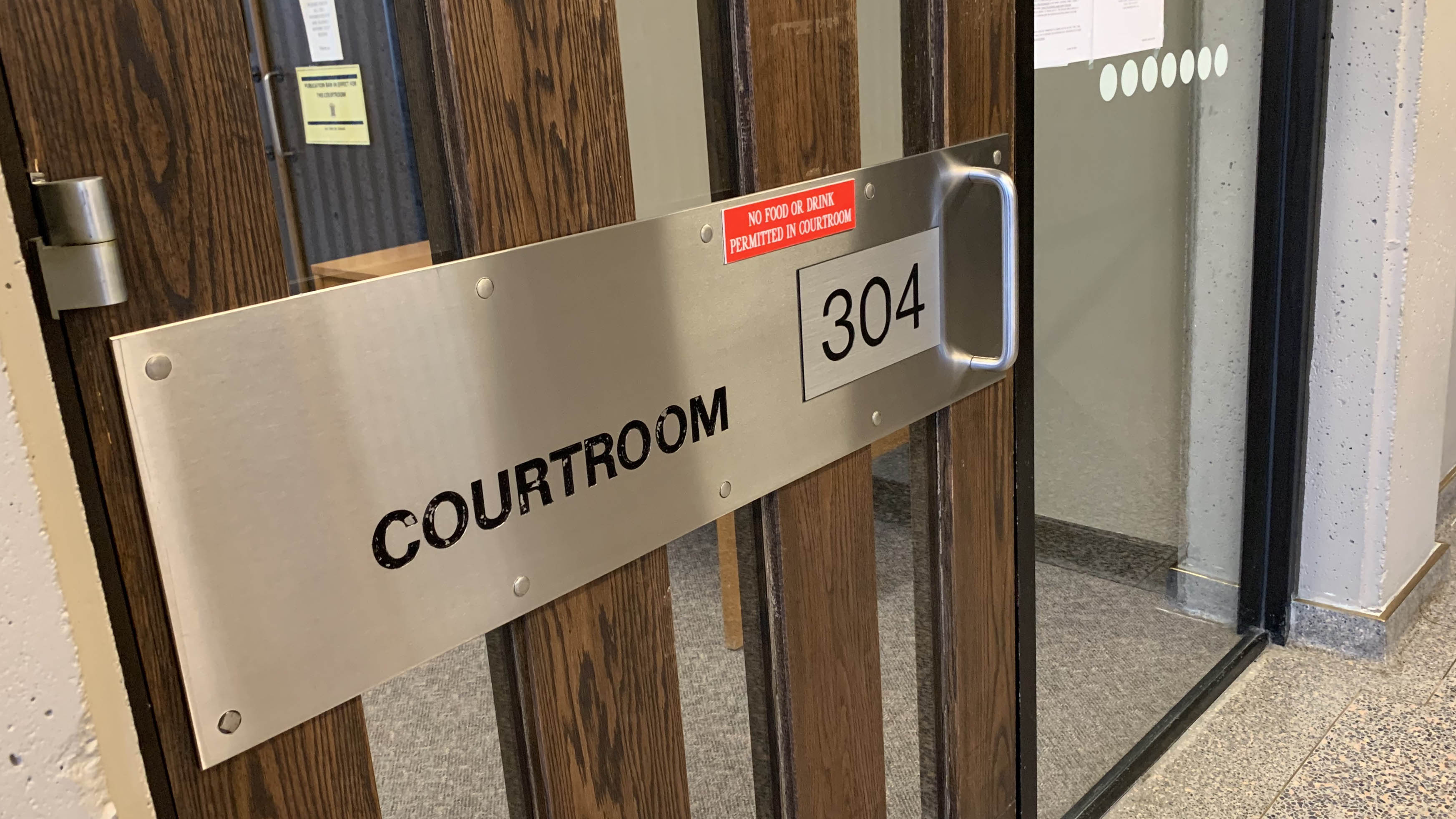Medical examiner confirms Gonzales was stabbed to death
Week 5 of murder trial underway in Halifax

caption
The sign on the courtroom's door, Dec. 3.Nadia Gonzales was stabbed about 40 times, mostly in her neck and back, and bled to death, a jury heard Monday.
“I believe the cause of death is multiple sharp force injuries,” Dr. Matthew Bowes, the province’s chief medical examiner, said in Nova Scotia Supreme Court.
Bowes went to the scene of the stabbing to get more insight into the circumstances of Gonzales’ death. He arrived at 33 Hastings Dr. in Dartmouth the morning of June 17, 2017, the day after the Hammonds Plains woman died.
Gonzales, 35, was found in a hockey bag on a stairwell in the apartment building. John Patterson, 72, was found with life-threatening injuries outside the building. Related stories
Calvin Joel (CJ) Maynard Sparks, 26, and Samanda Rose Ritch, 22, are charged with first-degree murder and attempted murder. This is the start of their fifth week in a Halifax courtroom.
Bowes said the bulk of Gonzales’ injuries were on her neck and back. At least two or three of the wounds likely occurred after, or just before, she died.
Bowes said Gonzales’ left hand had a number of sharp force injuries and one of her fingers was almost amputated.
“I think this is good evidence that this woman defended herself against these events,” said Bowes.
Gonzales’ most serious injury was one on the left side of her neck, centred around her ear. A knife hit the internal jugular vein and the carotid artery, Bowes said.
Crown attorney Steve Degen questioned Bowes about what type of knife could cause these sorts of injuries. Bowes said the majority of the injuries were “created by a single edge weapon,” longer than it is wide. He could not approximate the size of the weapon because of a variety of factors.
Degen asked Bowes if he could tell whether or not the wounds were from one or more knives. Bowes said that he cannot say.
“When I observed these injuries, I do not see distinctive features that would make me think more than one,” said Bowes. He said there could have been anywhere between one and 40 knives.
When Bowes was cross-examined by Ritch’s lawyer, Peter Planetta, he was asked about Gonzales’ toxicology report.
Bowes said the report showed that amphetamines and cocaine were in Gonzales’ system at her time of death.
Cross-examination of Fowler continues
Earlier Monday, Joseph Fowler, a Crown witness, sat in court for his third consecutive day.
Sparks’ lawyer, Malcolm Jeffcock, drew the jury’s attention to text messages from Fowler to Sparks, including one message that read: “you think because I’m a small white boy I won’t stick ’em.”
Fowler explained “stick ‘em” meant “stab them.”
Jeffcock read more text messages, which contained violent language. He said if Fowler was comfortable discussing murder over text then why aren’t there messages between Sparks and Fowler talking about Sparks’ plan to kill Gonzales. Jeffcock concluded this is because the discussion never took place.
Fowler said that discussion happened in person.
Jeffcock noted discrepancies between Fowler’s statements made to police on June 26, 2017, and September 28, 2018. He said in Fowler’s first statement he told police he had no conversations with Gonzales about Sparks. Fowler also said he didn’t think there was anything concerning going on between them.
This is the opposite of what Fowler told police on September 28, 2018, and what he told the jury on Friday.
On Monday, Nova Scotia Supreme Court Justice Christa Brothers announced the trial will continue at least until Tuesday of next week. She said there is potential for it to be extended further.
About the author
Lucy Harnish
Lucy is a journalism student at the University of King's College. She hails from Mill Cove, Nova Scotia. Her interest in Russian literature led...
